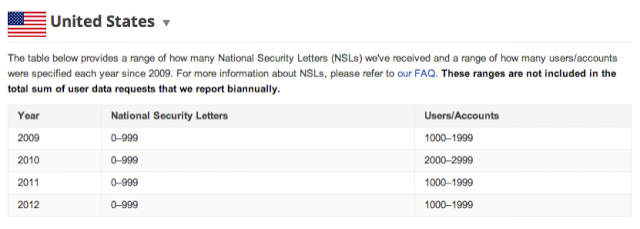Google Stands Up To FBI, Resists Request To Give Up Private User Data

Google impressed civil rights and privacy groups on Thursday when it resisted a demand by the FBI to give up its users’ personal information. The request came in the form of a National Security Letter just three weeks after a San Francisco judge ruled such letters to be unconstitutional. Advocacy groups say Google’s pushback represents one of the only times a major communications company has resisted one.
According to Bloomberg, who broke this story, the FBI has the authorization to issue NSLs to force companies to turn over records and subscriber information without a warrant if it is relevant to a terrorist investigation. Companies are also prohibited from informing customers that their information has been made available.
U.S. District Judge Susan Illston ruled on March 14 that NSLs violate free speech and separation of power principles, and are therefore unconstitutional. She ordered the FBI to stop issuing NSLs after a 90-day window for appeals.
Last week, Google petitioned the court to set aside the FBI’s request and have the records sealed. On April 3, Illston granted Google its request.
Internet privacy groups like the Electronic Frontier Foundation applauded Google’s efforts, saying that only a few challenges have been made to 300,000 NSLs since 2000. Matt Zimmerman, an EFF attorney who represented a service provider that won Illston’s March 14 ruling, told Bloomberg that companies like Google are in the best position to challenge NSLs.
“So far no one has really stood up for their users,” he said.
The issue is a hot topic in California right now. On April 3, California State Assembly member Bonnie Lowenthal introduced the “Right to Know Act 2013.” If passed, it would force businesses to tell consumers what data they have and how they are using it.
Google seems to be doing its part. On March 5, Richard Salgado, Google’s legal director of law enforcement and information security, included information on NSLs in Google’s transparency report. The post states that Google has received thousands of NSLs each year since 2009.

© Copyright IBTimes 2025. All rights reserved.






















